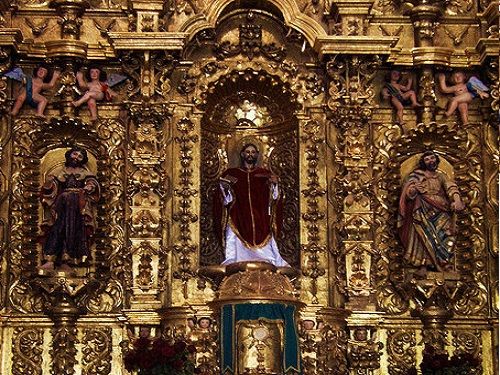
Excelente
412 Views
Inside there are four altars in neoclassical style dedicated to the Sacred Heart of Jesus, to Saint Anthony, to the Virgin of Guadalupe and to Jesus Christ. In the right transept there is a more neoclassical style altar, where the Nazarene is venerated; in the left transept there is a niche in which the Virgin Mary must have been worshipped. The main altarpiece is in a Churrigueresque style sculpted in the 18th century, made of cedar and mahogany wood, upholstered and gilded.
Amaxac de Guerrero is one of the 60 municipalities that make up the Mexican state of Tlaxcala. It is located in the center of the state, its name comes from Nahuatl and is interpreted as "Where the water forks", it has various historical buildings such as the Parish of San Bernabé from the 17th century, the municipality of Amaxac de Guerrero is part of the "Textiles and the Center" route, this route is one of those that has its wealth in textiles and colonial haciendas such as the Santa Elena spinning and weaving factory and the Ex-Fábrica La Estrella, the Chapel of San Damián was built in 1892, on June 11 the feast of the Patron Saint, San Bernabé Apóstol, is celebrated, which begins 9 days before with the so-called novena
Carnival symbolizes the farewell to the profane world, before entering Lent, which begins with the celebration of Ash Wednesday. Generally, Carnival begins 4 days before the celebration of Ash Wednesday. During these days, dance is organized in groups of 25 to 30 couples, dressing up as catrines with black umbrellas. The following Sunday, dancing begins again, that is, eight days after the carnival has begun, a date also known as "the octave." On June 11, the feast of the Patron Saint, San Bernabé Apóstol, is celebrated, which begins 9 days before with the so-called novenario (daily masses are held in the morning and rosaries in the afternoon). In addition, horse races, cockfights, fireworks, cultural and sporting events are held.